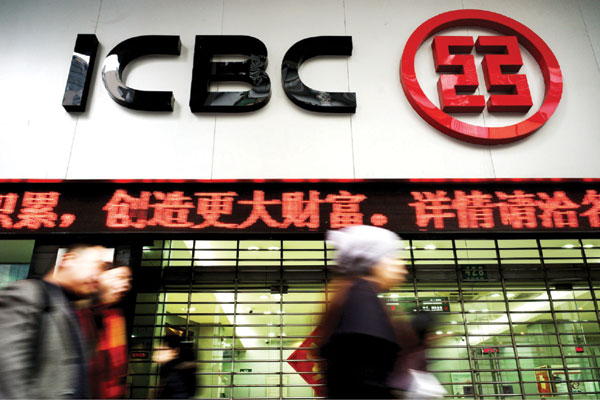Prospects brighter for foreign banks in China
By Alfred Romann in Hong KongFor China Daily (China Daily) Updated: 2014-05-05 09:25
 |
|
Industrial and Commercial Bank of China is an example of a domestic giant dominating the market, making it difficult for regional financial firms to make inroads into China. AFP |
But dominance of domestic players limit many to nation's big cities
Foreign banks continue to make inroads in China, but after years of expanding their networks they remain marginal players in retail and consumer spaces.
Still, they are chipping away slowly, building market share and expanding their presence in the financial services sector and among their corporate clients. And regulators are encouraging them.
A series of regulatory announcements last year opened the door for more international activity like trade and cross-border financing at which global banks excel.
 |
 |
In the past few weeks, the People's Bank of China suggested it may further ease restrictions on bond trading. On April 10, the PBOC opened the door to cross-border investment between stock exchanges in Hong Kong and the Chinese mainland. While financial institutions broadly welcomed these moves, the impact might be limited.
In a report in January, global accountancy firm EY noted that foreign banks are generally optimistic about the prospects for the China market but worry about complex regulations that combine with capital and liquidity constraints to make their growth difficult.
By the end of 2012, according to the China Banking Regulatory Commission, there were 42 locally incorporated foreign banks in China and another 370 branches or subsidiaries.
All told, they had assets of 2.3 trillion yuan ($1.8 trillion) but their market share is paltry and remains concentrated in the big cities where they can reach corporate customers.
Although they are expanding geographically in China, foreign banks tend to gather around Guangzhou, Shenzhen, Shanghai, Beijing and Tianjin. There is a smattering of branches elsewhere but they exist to service a handful of corporate clients. Besides the Chinese domestic giants, the largest networks belong to Bank of East Asia, DBS of Singapore, Hang Seng Bank of Hong Kong, Citibank, HSBC and Standard Chartered.
















